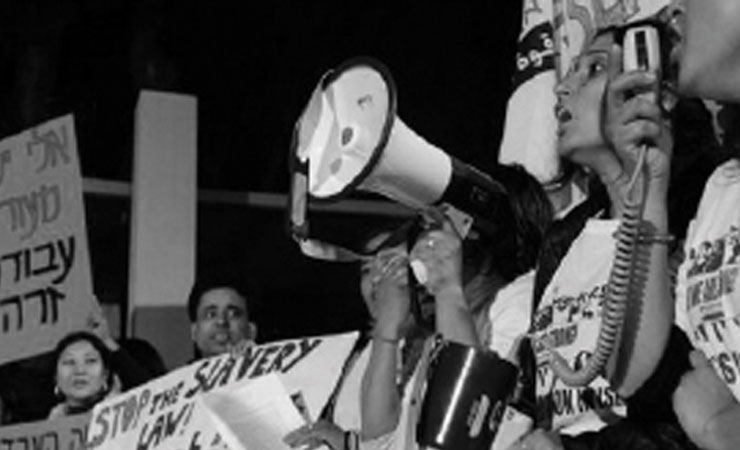The primary objective of the new three year project, in collaboration with Christian Aid and other NGOs, is to reform existing laws regarding domestic workers and enforce domestic workers’ rights as accorded by Convention 189 on a national and regional level. The project also aims to enable domestic workers themselves to participate in official standard-setting processes, like advocacy and lobbying. To encourage the ratification and wider regional use of C189, Kav LaOved is participating in building broader and deeper networks of domestic workers, NGOs, and other allies in the movement.
Kav LaOved will also develop capacity of migrant caregivers to serve as advocates and leaders within their respective communities. Advocates will receive training in Israeli labor law, its application, and will be capable of dispersing knowledge amongst fellow caregivers. Hence, these communities will be better able to have increased representation on their behalf. Kav LaOved, alongside the community advocates, will continue to lobby for better national policy and laws regarding migrant worker rights, such as ensuring their protection under the Rest and Work Hours Law.*
Furthermore, community advocates will be trained in public relations and media, with the goal of directly increasing their presence in mainstream media sources. Media involvement has the capacity to not only provide information and advice, but can also increase visibility of caregivers and their situations to the Israeli community at large. Through this, and the summary of activities above, Kav LaOved, Christian Aid, and its NGO partners aim to ensure the protection of migrant workers, including caregivers and domestic workers, by promoting the rights outlined in C189 as minimum standards of employment for all occupations in Israel.
*In March 2013, the High Court reaffirmed that the law does not apply, categorically and comprehensively, to the work of migrant workers in the caregiving sector, meaning that minimal standards do not apply to them and therefore it is possible to employ them 24 hours a day, with no breaks or weekly rest, and with no obligation to pay them for working overtime, on Shabbat or holidays.


